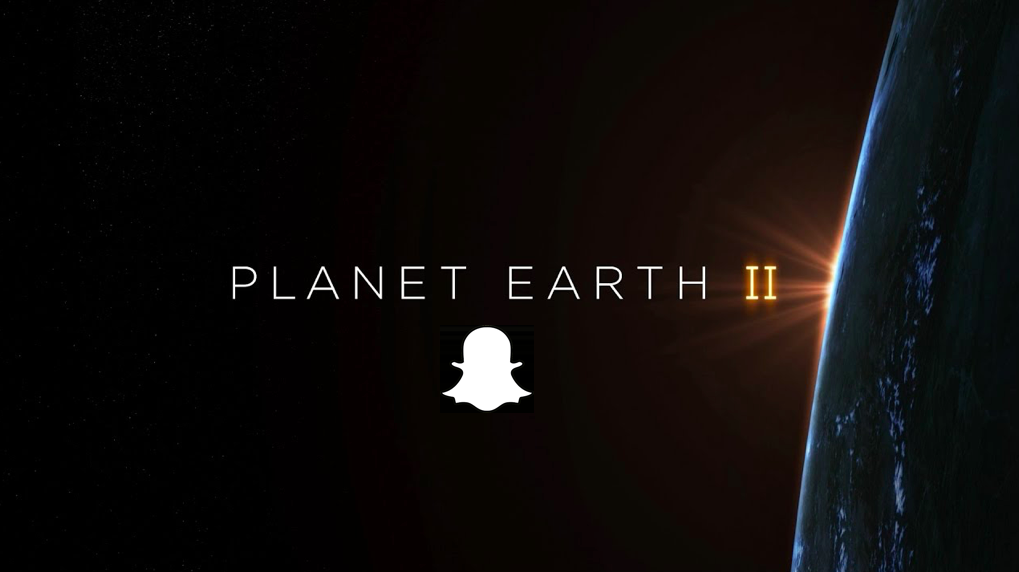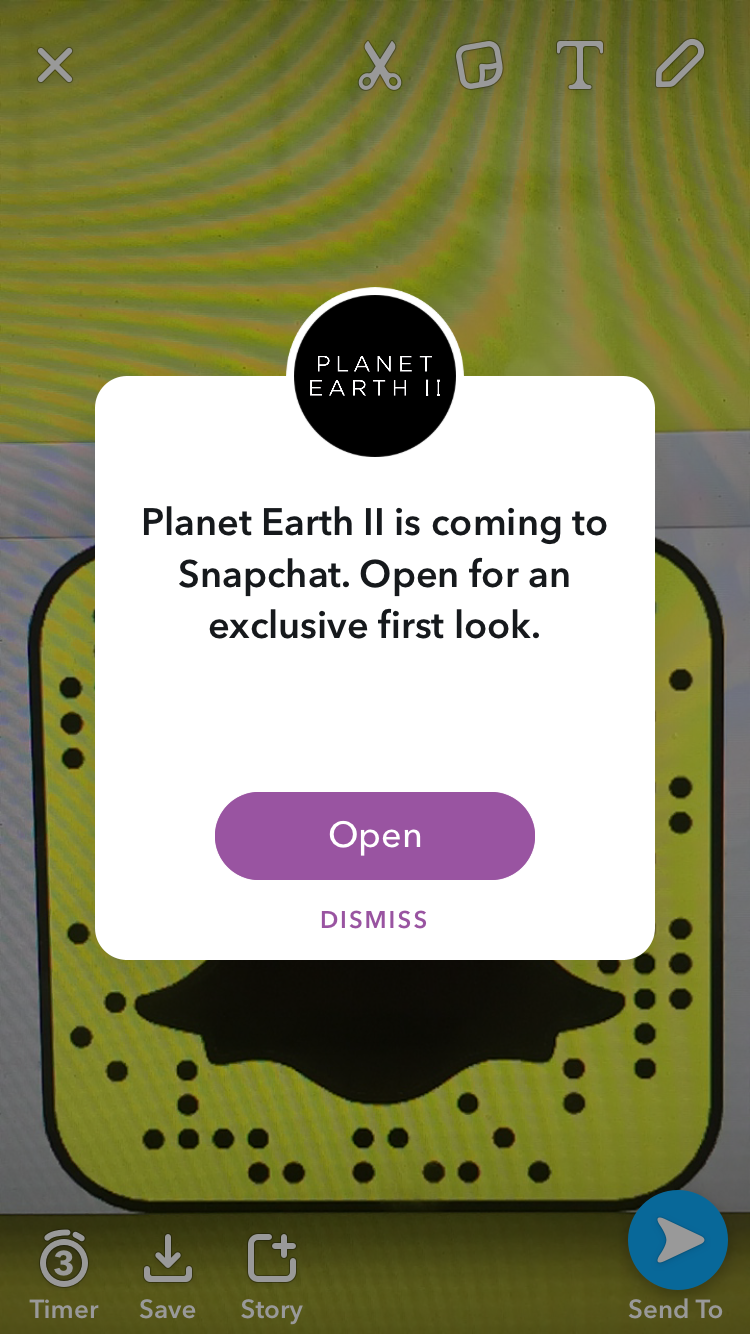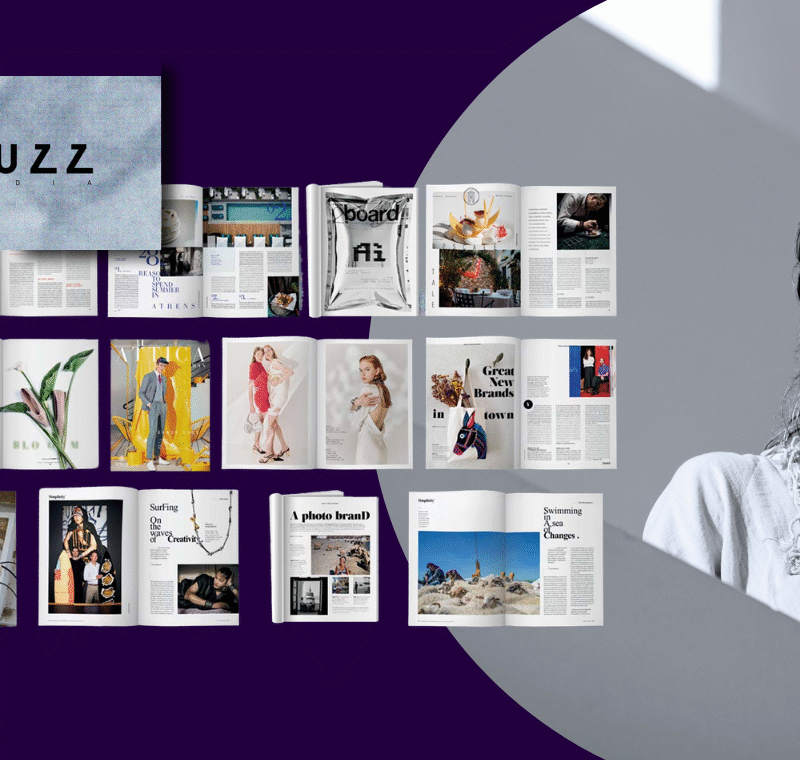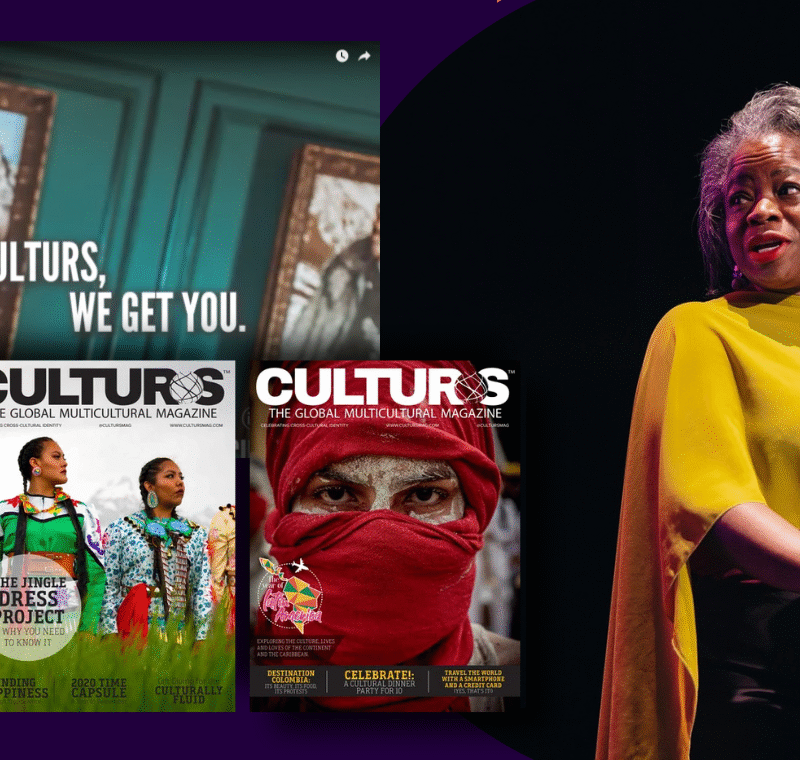BBC Worldwide on its exclusive content partnership deal with Snapchat
As Snapchat prepares to take its 156m+ users to Wall Street, it does so with a range of high profile broadcast media brands already in its armoury. The Snapchat Shows platform has already enticed the likes of CNN, ESPN, ABC and NBC. Now BBC Worldwide is also on-board.
In a recent initiative one day ahead of the US and Canada launch of flagship show Planet Earth II, BBC Worldwide released the first episode in a six part mini-series of the show created exclusively for the mobile sharing platform.

For Snapchat – recently rebranded as Snap Inc. ahead of its reportedly imminent IPO on the New York Stock Exchange (NYSE) – the benefits are multiple. Goldman Sachs came on board as the high-profile sponsor of the first show, and more generally the format does offer an enticing opportunity for brands to occupy advertising inventory in-between snaps. Perhaps even more importantly, this type of unique content gives Snapchat an extra edge to demonstrate to investors going into its initial public offering – an important piece of the puzzle in differentiating itself against other leading social media players, as highlighted recently by TechCrunch:
“Snap is three things, and everyone else is two of them,” writes TechCrunch editor, Josh Constine. “There are plenty of chat apps, and Stories is being copied successfully by Instagram, with more Facebook clones on the way. But Snapchat’s unique Discover section, full of mobile-only daily magazines from professional publishers, could evolve into something game-changing: the premier place for premium mobile video.”
For BBC Worldwide the Snapchat deal represents an opportunity to reach a whole new generation of audiences, while growing its global reach: “Digital platforms present us with a fantastic opportunity to reach new audiences,” says Daniel Winner, director of digital partnerships at BBC Worldwide.
“Strategically at BBC Worldwide we are looking to develop content partnerships with a new wave of digital businesses that are shaping the development of the media content industry. We’ve started our partnership with Snapchat with a series of six bespoke Snapchat shows each themed to an episode of Planet Earth II. These were launched alongside the series linear broadcast on BBC America in the US and the newly launched BBC Earth channel in Canada.”
<div></div><p>“By taking our content onto these new platforms we’re able to amplify our global franchise brands in key territories where we are looking to go and through reaching audiences that are becoming harder to reach through traditional television. There’s a whole generation of people who are spending most of their time on social using platforms like Snapchat and if we’re going to serve this audience we need to take our content to them.”</p> <div></div><p>Both BBC Worldwide and Snapchat are so far remaining tight lipped on the specifics of the monetisation breakdown, i.e. what percentage of the advertising revenue goes to the content creator vs. the distribution channel. However, what we do know from the preliminary feedback is that the broadcaster is positive about the initial results from the partnership. </p> <div></div><p>“We’re really pleased with the response from viewers to the first episodes,” said Winner. “it’s shown us that there is certainly an audience for premium factual short-form content on the platform and that it can be a wonderful vehicle for connecting with a traditionally hard to reach audience who are increasingly spending their time in private social. The Snapchat deal is focussed on North America and Canada to run alongside the linear transmission of Planet Earth II in these markets, and there is advertising revenue placed around the content in between the snaps.” </p> <div></div><p>The distinction between public and private social is an important one, as from a Snapchat point of view this may just end up being the key differentiator between itself and the likes of Facebook and Twitter. In other words as earlier social platforms remain wedded, at least in part, to monetisation of conversation, Snapchat is looking increasingly towards premium and exclusive content. For the publishers and broadcasters whose business it is to create this quality content, this spells good news. </p> <div></div><p>“Importantly by taking our brands into this space we’re really looking to enrich our audiences’ experience of our content and introduce them to new stories and experiences,” Winner says. “The way we’ve adapted Planet Earth II content for Snapchat is a great example of this: we’ve worked collaboratively with Snapchat to create a premium natural history series that is fully optimised for their platform. By working closely together we benefitted from Snapchat’s insight and learning, marrying this with BBC Studios storytelling expertise to ensure that we delivered a series for this platform with all the BBC hallmarks of quality that you would expect. This informed our process from the outset, everything from cropping footage to be able to tell a story in the vertical, to making use of the split screen function – a fantastic tool unique to Snapchat that allows you to simultaneously show different perspectives in the narrative. It’s been a really exciting new creative venture for our production team and the result has been a series of bespoke shows that have been uniquely tailored to meet the needs of a Snapchat audience.”</p> <div></div><p>For BBC Worldwide, it is a content partnership deal that is not in isolation. Indeed, the company is progressing further and further into content partnerships with a range of emerging media-tech platforms. </p> <div></div><p>“All we can say is ‘watch this space’. We’ve recently launched a <a href=”http://www.vox.com/videos/2017/2/20/14650348/making-of-planet-earth-” target=”_blank”>similar partnership with Vox</a> for an exclusive series that looks behind the scenes at the craft of making landmark nature series like Planet Earth II and this has been well received. We also recently announced our first venture into <a href=”http://www.bbc.co.uk/mediacentre/worldwide/2017/oculus” target=”_blank”>virtual reality with Oculus</a>. What links all of these deals is the versatility of our content and the opportunities that open up when we enter into collaborative conversations with new partners. Paramount for us is quality, it’s what audiences expect from the BBC and we want each new experience to delight our audience and deepen their relationship with our brands and content.” </p> <div></div><p>Watch this space is a fitting turn of phrase in this instance. The BBC Worldwide-Snapchat partnership represents another high-profile example of a leading media brand placing itself into the space online eyeballs are being drawn towards, as opposed to following the more traditional approach of attempting to draw those users back to its own channels. With an IPO imminent and a thirst for exclusive, quality content, Snap Inc. could well prove to be a lucrative platform for media brands.     </p> <div></div>
“By taking our content onto these new platforms we’re able to amplify our global franchise brands in key territories where we are looking to go and through reaching audiences that are becoming harder to reach through traditional television. There’s a whole generation of people who are spending most of their time on social using platforms like Snapchat and if we’re going to serve this audience we need to take our content to them.”
Both BBC Worldwide and Snapchat are so far remaining tight lipped on the specifics of the monetisation breakdown, i.e. what percentage of the advertising revenue goes to the content creator vs. the distribution channel. However, what we do know from the preliminary feedback is that the broadcaster is positive about the initial results from the partnership.
“We’re really pleased with the response from viewers to the first episodes,” said Winner. “it’s shown us that there is certainly an audience for premium factual short-form content on the platform and that it can be a wonderful vehicle for connecting with a traditionally hard to reach audience who are increasingly spending their time in private social. The Snapchat deal is focussed on North America and Canada to run alongside the linear transmission of Planet Earth II in these markets, and there is advertising revenue placed around the content in between the snaps.”
The distinction between public and private social is an important one, as from a Snapchat point of view this may just end up being the key differentiator between itself and the likes of Facebook and Twitter. In other words as earlier social platforms remain wedded, at least in part, to monetisation of conversation, Snapchat is looking increasingly towards premium and exclusive content. For the publishers and broadcasters whose business it is to create this quality content, this spells good news.
“Importantly by taking our brands into this space we’re really looking to enrich our audiences’ experience of our content and introduce them to new stories and experiences,” Winner says. “The way we’ve adapted Planet Earth II content for Snapchat is a great example of this: we’ve worked collaboratively with Snapchat to create a premium natural history series that is fully optimised for their platform. By working closely together we benefitted from Snapchat’s insight and learning, marrying this with BBC Studios storytelling expertise to ensure that we delivered a series for this platform with all the BBC hallmarks of quality that you would expect. This informed our process from the outset, everything from cropping footage to be able to tell a story in the vertical, to making use of the split screen function – a fantastic tool unique to Snapchat that allows you to simultaneously show different perspectives in the narrative. It’s been a really exciting new creative venture for our production team and the result has been a series of bespoke shows that have been uniquely tailored to meet the needs of a Snapchat audience.”

For BBC Worldwide, it is a content partnership deal that is not in isolation. Indeed, the company is progressing further and further into content partnerships with a range of emerging media-tech platforms.
“All we can say is ‘watch this space’. We’ve recently launched a similar partnership with Vox for an exclusive series that looks behind the scenes at the craft of making landmark nature series like Planet Earth II and this has been well received. We also recently announced our first venture into virtual reality with Oculus. What links all of these deals is the versatility of our content and the opportunities that open up when we enter into collaborative conversations with new partners. Paramount for us is quality, it’s what audiences expect from the BBC and we want each new experience to delight our audience and deepen their relationship with our brands and content.”
Watch this space is a fitting turn of phrase in this instance. The BBC Worldwide-Snapchat partnership represents another high-profile example of a leading media brand placing itself into the space online eyeballs are being drawn towards, as opposed to following the more traditional approach of attempting to draw those users back to its own channels. With an IPO imminent and a thirst for exclusive, quality content, Snap Inc. could well prove to be a lucrative platform for media brands.
More like this
The Economist is joining Snapchat Discover
Snap files IPO – buts says it might never be profitable
Snapchat and Instagram storm the social media party in the UK







